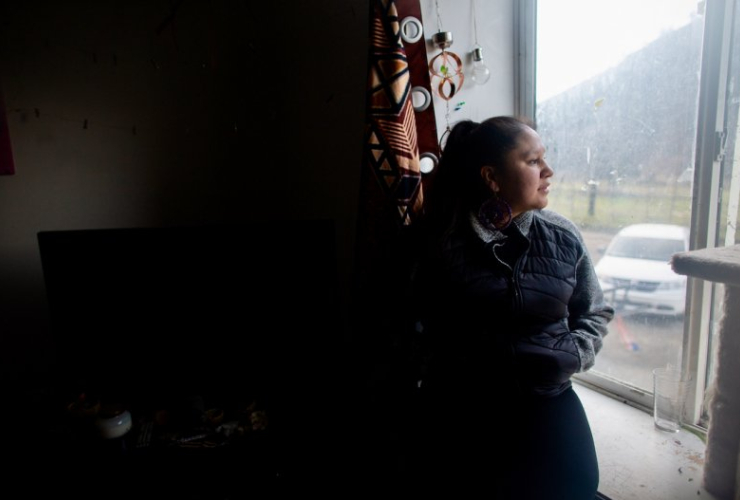Marc Fawcett-Atkinson

Journalist | Vancouver |
English
French
About Marc Fawcett-Atkinson
Marc Fawcett-Atkinson is a reporter and writer covering food systems, climate, disinformation, and plastics and the environment for Canada’s National Observer.
His ongoing investigations of the plastic industry in Canada won him a Webster Award's nomination in environmental reporting in 2021. He was also a nominee for a Canadian Association of Journalists's award for his reporting on disinformation.
Marc has previously written for High Country News, the Literary Review of Canada, and other publications on topics exploring relationships between people and their social and physical environments.
He holds an M.A. in journalism from the University of British Columbia and a B.A. in Human Ecology from the College of the Atlantic.
'We've been rationing': First Nation left without food in wake of B.C. floods
A First Nation near Lytton, B.C., is conserving its food supply after historic flooding washed out roads in the surrounding area, severing access to basic necessities.
As the floodwaters rose, this simple solution kept a B.C. farmer’s fields intact
Cover crops and other key practices in organic, regenerative, and agroecological farming also help farms weather the climate crisis. In addition to keeping soils stable during floods, they protect the ground from extreme heat, which can kill important microbial ecosystems, and help retain moisture during dry spells.
Canada needs to do better at recycling and reusing stuff
Canada has one of the world's most wasteful economies when it comes to recycling and reusing commodities like plastic, metal, and energy, a new report commissioned by Environment and Climate Change Canada has found.
Chefs and grocers adapt in B.C.’s ‘year of emergencies’
"It's been pretty nice this time around," said Kootenay Co-op general manager Ari Derfel. "We've been living in a year of emergencies and this time — seeing people just come in and get what they need and not freaking out — it's been kinda calming."
B.C. farmers face 'gut-wrenching' reality
Similar scenes have played out across southern B.C. in recent days as the province grapples with an unprecedented storm that flooded Merritt, Princeton, and much of the Fraser Valley under metres of frigid, dirty water.
After the storm, ‘the cupboards are bare’
When Penticton, B.C., resident Katya Irwin opened her computer Tuesday afternoon to place an order at her neighbourhood grocery store, the floods and landslides wreaking havoc in other parts of the province were far from her mind. Then she noticed that dozens of commonplace items like milk and vegetables were no longer in stock.
COP a flop in tackling big climate problem — plastic
Plastic production is a major source of greenhouse gas emissions and is growing rapidly as demand soars worldwide. If nothing is done, analysts predict it will account for about 13 per cent of the world's remaining carbon budget by 2050.
Hundreds march out of 'exclusive' COP26 in stinging rebuke
Speaking at a "people's plenary" meeting Friday, youth, farmers, trade unionists, environmental groups, and disability and gender rights advocates criticized the UN climate change conference in Glasgow for being among the most exclusive negotiations so far.
What's really the best alternative to meat?
Every day around noon, the smell of grilled beef and roasted venison wafts through the lines of delegates attending the COP26 climate conference as they queue for lunch. Yet even as hundreds flock to the burgers and venison pasties on offer, some attendees wonder if meat — a big emitter worldwide — should be on the menu.
World hungry for change on meat production and fertilizers, except for Canada and the U.S.
Countries gathered for the COP26 climate conference in Glasgow, Scotland, have for the first time agreed that the world must transition to more sustainable farming practices if we are to mitigate climate change and prevent millions of people from going hungry.










